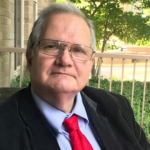
We are in the middle of three major Sunday solemnities. May 28 was the Solemnity of Pentecost. June 4 is the Solemnity of the Most Holy Trinity. June 11 is the Solemnity of the Body and Blood of Our Lord Jesus Christ, often called “Corpus Christi.”
These three feasts are closely intertwined, though they might not appear so at first, especially since Ordinary Time weaves through the weekdays among them. Part of the reason for why they might seem disconnected could be the loss of the Pentecost octave. Pentecost used to have its own octave, so that Trinity Sunday was also its octave day (and probably the reason why the Holy See in the nineteenth century approved the still-valid indult that specifies the time for fulfillment of one’s “Easter duty”—when one should receive one’s Easter Communion—to run from the First Sunday of Lent through Trinity Sunday). Corpus Christi, in most of the world, is observed on the Thursday after Trinity Sunday, though, in the United States, it’s another of those solemnities transferred to the adjacent Sunday.
I argue the theme connecting these three solemnities is life.
Pentecost is the celebration par excellence of the Holy Spirit. Each Sunday, we confess our faith in the Holy Spirit as “the Lord and Giver of life.”
The Holy Spirit is the giver of spiritual life. The story of Pentecost might accentuate the fortitude that the Holy Spirit provides, enabling us to bear witness to the Faith. No small number of priests will have called Pentecost “the birthday of the Church.” That is true, but it is also the first confirmation. Though some French theologians have recently spoken of confirmation as “the forgotten sacrament,” the truth is that the “gift of the Holy Spirit” that Jesus sent to his disciples assembled according to his instructions in Jerusalem’s Upper Room is the same gift that the bishop imparts when he signs candidates for confirmation, praying, “Be sealed with the gift of the Holy Spirit.”
The life of the Church began on Pentecost. But the Christian life always begins with the Holy Spirit. Whatever good we do, whatever good inspirations we have, whatever witness we bear to truth and goodness, begins with the inspiration of the Holy Spirit. Let’s not forget that: all our good is incited by the Holy Spirit. We are free to follow through or not, but the grace of the Holy Spirit is what prompts us. The sacraments “work” because the Holy Spirit works through them. God’s graces—actual and sanctifying—come to us from the Holy Spirit.
That’s why Jesus says the one sin that is unforgivable is “blasphemy against the Holy Spirit.” What is that? Put simply: it is the persistent and finally impenitent refusal to accept God’s graces. God will forgive everything, but even God cannot forgive the person who doesn’t want to be forgiven (at least not on God’s terms).
The Holy Spirit did not just zoom down on Jerusalem and then rush back to heaven. The Holy Spirit is he who continues Jesus’ work and redemption in the Church until the Last Day, when Jesus returns. So we owe the Holy Spirit our spiritual lives.
We also owe God our physical lives. It’s said “it takes two to have a baby.” That’s not wholly correct. It actually takes three.
A man and a woman can contribute the physical components—the gametes—essential to man’s physical dimension. But they cannot infuse a soul, which is essential to the life of the body. Only God can do that. Only God is “Lord and giver of life.” So when human beings take affirmative actions to frustrate the giving of life—when they act to make their sexual intercourse infertile—they are also essentially telling God, “Your giving of life requires my approval.” Isn’t that a kind of blasphemy?
That leads us to the Trinity. No small number of priests will tell you, “The Trinity is a mystery”—and it is. But that doesn’t mean we are utterly ignorant of whom God is.
St. John is audacious. He attempts to define God. “God is Love” (1 John 4:8). God doesn’t love, like one action among many. God purely and simply is Love. And because Love is never self-centered, but always giving, God’s love cannot be anything else but a communion of persons, which is what the Trinity is. The Father loves absolutely, “begetting” his Son from eternity. The Son responds in love to the Father absolutely from all eternity. From where their love meets “proceeds” the Holy Spirit, from the Father and the Son.
So God is Love, and God is three Persons. And we are made in the image and likeness of that God.
That is why the human vocation is love. That is why St. John Paul II could write in his first papal encyclical that man “remains incomprehensible for himself, his life is senseless . . . if he does not make [love] his own” (Redemptor Hominis 10). Given in whose image human beings are made, the failure to give in love is to be existentially frustrated.
For most people, that giving in love occurs in marriage and, through marriage, parenthood. Again, the Trinity provides us with a model of absolute, unreserved Love that gives life. God’s life and God’s love are the same; why do we think we can separate these realities in our lives?
Finally, we celebrate Corpus Christi. Jesus promised to remain with us until the end of time, and he does so, through the invocation of the Holy Spirit at each Mass, in the Eucharist. It’s not a “symbol” or a “memory.” It is the true Body and Blood, Soul and Divinity of Jesus Christ given to us. Jesus is a true human being, which means he encounters us as a true human being: bodily and spiritually, albeit under the appearances of bread and wine. That’s why the doctrine of transubstantiation is not marginal to our faith: Jesus really is here, and not just a reminder of him.
The Eucharist will always give us God’s life as long as we put no obstacle—i.e., sin—in the way. Mortal sin is such an obstacle, a form of “spiritual contraception”—the life God gives us in the Eucharist is brought into a sterilized and dead soul. So, again, this feast shows us what true love—and its intrinsic connection to life—entails.
We celebrate a truly rich, life-giving series of solemnities at this time of year. Let’s celebrate them to our spiritual profit.



